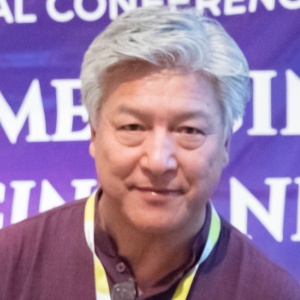Title : Functional Tibetan medicine: An integrative traditional medicine
Abstract:
Previous efforts to link Tibetan and western biomedicine have had challenges because of the attempts to link the concepts of disease diagnosis in the western biomedical views with Tibetan approaches that do not utilize such a disease concept. There is no one-to-one categorical semblance of traditional medicine diagnoses with western biomedical illness diagnoses. This is similar for most if not all traditional medicines. Because both Tibetan and functional medicines do not use a disease diagnosis model but rather look at the whole through a lens of interconnectivities of systems, it is our experience that these two systems best overlap for the integration of traditional and western biomedical systems. The days of reductionist medicine are transforming back to the ways of ancient wisdom with the benefits of modern technology for validation and to expand our understanding of Tibetan and other traditional medical approaches. Prevention is paramount in both Tibetan and functional medicines and in both systems the patient becomes the partner and accepts responsibility for their outcome. Both Tibetan and functional medicines view the body as a connection of interacting biological systems and we share the benefit of the combination of the two medical views for optimal clinical outcomes for a variety of chronic conditions. Tibetan and functional medicines have many commonalities that promote their integration. These commonalities likely overlap with other traditional medical systems, a systemic whole of healing.
- Both have a mind-body-spirit emphasis.
- Both maintain a systems biology view that all is connected, not only within the systems of the human body but also with the body and its environment.
- Prevention is key, food and lifestyle are the best medicines.
- Both Tibetan and functional medicines do not utilize a disease-diagnosis paradigm but rather a continuum of health and imbalance from the perspective of their system biology views.
- The tree allegory is used in both Tibetan and functional medicines for educational purposes though those used in Tibetan medicine have more details as relates to physiology, pathophysiology, diagnosis, and treatment.
- Tibetan medicine defines the body’s functional systems based on the five elements, three nyepa sum, microorganism balance, seven tissues, and whether they are solid or hollow organs, whereas functional medicine classifies systems based on their biochemical activities and functions. These two can be integrated to simplify the understanding of complex illness.
- Both medical systems agree that healing begins in the gut. Chronic disease starts in the gut and treatment begins with the gut.
- Functional medicine integrates nutritional biochemistry with modern labs to evaluate one’s biochemical status in deeper ways.
- Tibetan medicine offers detailed theories on how to personalize individuals and labs into meaningful patterns that simplify complex big data of functional and modern systems biology medicine.
An overview of both Tibetan and functional medicine approaches and their integration will be shared as relates to chronic conditions. Such integration is relevant for traditional medicines in general as relates to modern healthcare needs.




